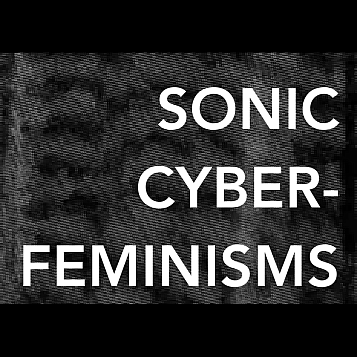In recent years, debates around sound, gender and technology have increasingly gained attention, whilst the number of artist networks, archives and educational initiatives established in the hope of tackling gendered exclusions from the technocentric fields of electronic music, audio production and sound arts has expanded. Many of these initiatives overlap with some of the concerns and ideals of cyberfeminism, understood as a disparate and amorphous set of events and debates that emerged in the early-to-mid 1990s and explored the possibilities and challenges of technology, computing and Cyberspace for feminist praxis.
This themed issue of Feminist Review aims to address in what ways ‘the sonic’ and cyberfeminism can be used in combination to productively understand and develop feminist thinking and practices. Taking into account a plurality of current agendas, methods, perspectives and priorities, this themed issue aims to critically reflect on which disparities are revealed and which ‘feminist’ agendas are being pursued when issues around sound, gender and technology are considered more broadly. Different anxieties, challenges and potentials permeate the contemporary condition compared to the 1990s, and the gendered relations that left ‘cyberfeminism’ to be characterised as ‘postfeminist’ have since transformed in distinct ways. This has included rethinking the racial politics of sound, gender and technology.
For this issue of Feminist Review, we seek articles and Open Space contributions that address the theme of ‘sonic cyberfeminisms’. The issue aims to engage with a range of topics, many of which are absent in the contemporary surge in interest in sound, gender and technology.
Submissions might explore but would not be limited to:
- Feminist approaches to audio technologies or sound production
- Alternative feminist histories of electronic music
- Sounding dimensions of race and racialisation
- Gendered labour practices in audio technology/electronic music or production
- Activist practices around sound, gender and technology
- Gendering of technologised voices
- Audio technological practices in reproduction
- Sonic readings of histories of cyberfeminism/cybernetics
- Disability in sonic technologies
- Legal and policy mechanisms around sound, gender and technology
- Transgender rights and politics in sonic cyberfeminism
- Sound, technology and ecological crisis
- Sonic cyberfeminist notions of futurity
Issue Editors: Annie Goh, Ioana Szeman, Marie Thompson and Sadie Wearing
Potential authors are invited to correspond with the editors prior to submission at a [ punto ] goh gold [ punto ] ac [ punto ] uk (a[dot]goh[at]gold[dot]ac[dot]uk), i [ punto ] szeman
gold [ punto ] ac [ punto ] uk (a[dot]goh[at]gold[dot]ac[dot]uk), i [ punto ] szeman roehampton [ punto ] ac [ punto ] uk (i[dot]szeman[at]roehampton[dot]ac[dot]uk), mthompson
roehampton [ punto ] ac [ punto ] uk (i[dot]szeman[at]roehampton[dot]ac[dot]uk), mthompson lincoln [ punto ] ac [ punto ] uk (mthompson[at]lincoln[dot]ac[dot]uk) and s [ punto ] wearing
lincoln [ punto ] ac [ punto ] uk (mthompson[at]lincoln[dot]ac[dot]uk) and s [ punto ] wearing lse [ punto ] ac [ punto ] uk (s[dot]wearing[at]lse[dot]ac[dot]uk).
lse [ punto ] ac [ punto ] uk (s[dot]wearing[at]lse[dot]ac[dot]uk).
Full articles and Open Space pieces must be submitted by 15 July 2019.
Feminist Review articles are between 6,000 and 8,000 words in length, including an abstract, footnotes and references. Open Space pieces are up to 3000 words in length, including footnotes and references. Open Space contributions can take a variety of forms, including experimental pieces, visual and textual media, interviews, short stories, poems and photographic essays.
Manuscripts should be submitted through Feminist Review’s online submissions system and in FR house style. Please visit www.feminist-review.com and https://mc.manuscriptcentral.com/feministreview for full author instructions.
